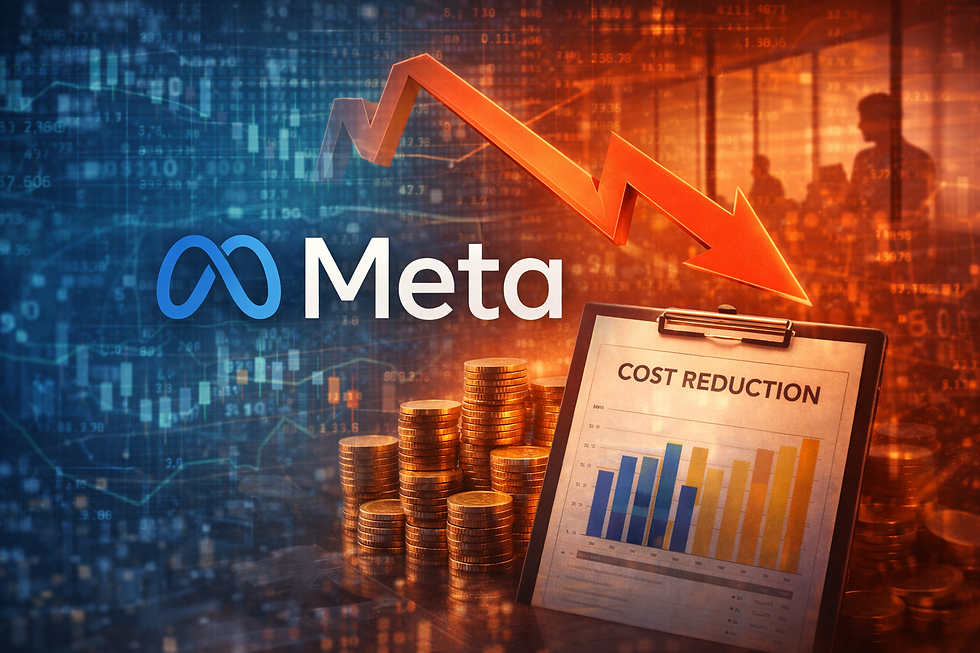EU Plans Trump-Style Import Curbs on Food, Reports Say
- Feb 16, 2025
- 3 min read
Introduction
The European Union is reportedly considering imposing import curbs on food products, following a strategy similar to the one previously adopted by former U.S. President Donald Trump. These proposed tariffs, designed to protect local agricultural markets, come amidst rising concerns about global food supply chains and trade imbalances. According to a report by the Financial Times, the EU’s move could have significant implications for the global food market, reshaping international trade and potentially leading to increased costs for consumers and businesses alike.

Key Takeaways
EU is considering Trump-style tariffs on food imports to protect domestic markets.
The move could disrupt global food trade and affect supply chains.
European policymakers aim to secure food sovereignty in response to market volatility.
Why the EU is Considering Import Curbs
The European Union's potential shift toward implementing import curbs comes as part of a broader strategy to secure food sovereignty and shield its agricultural sector from external shocks. The EU has faced significant disruptions in global supply chains, particularly in the wake of the COVID-19 pandemic and the ongoing geopolitical tensions in regions such as Eastern Europe. Rising food prices and supply chain vulnerabilities have led to growing concerns about the long-term stability of food supplies within the EU.
By imposing tariffs or other restrictions on imported food products, the EU aims to protect local farmers and producers from unfair competition, ensuring that domestic agriculture remains viable. Similar to Trump’s “America First” trade policy, the EU seeks to strengthen its own agricultural industry by reducing dependence on external suppliers.
Impact on Global Trade
If the EU moves forward with these proposed curbs, the ripple effects could be felt throughout the global food market. The EU is one of the largest importers of food products worldwide, and changes in its trade policies could disrupt the flow of goods, particularly from major agricultural exporters. Countries such as the U.S., Brazil, and Argentina, which rely heavily on food exports, could see their businesses impacted by these potential tariffs.
Additionally, global food prices could rise due to reduced competition in the market, and consumers might bear the brunt of these higher costs. Importers and distributors would need to adjust their pricing models, passing on the increased costs to retail outlets and ultimately to consumers.
The Political Debate Around Protectionism
While the proposed import curbs could protect local agricultural industries, the move is not without its critics. Supporters of free trade argue that the EU’s shift toward protectionist measures could lead to a less efficient and more expensive global food market. Critics believe such tariffs could provoke retaliation from other nations, escalating into a trade war and exacerbating tensions in international relations.
In contrast, proponents argue that safeguarding food security and supporting local farmers is essential, especially in times of economic uncertainty and climate-related disruptions. They view the import restrictions as a necessary step to ensure the EU’s agricultural resilience and long-term sustainability.
Looking Ahead: What’s Next for EU Trade Policy?
As EU policymakers deliberate on the proposed import curbs, the next steps in its trade policy remain uncertain. If the EU decides to move forward with tariffs, it would likely need to negotiate terms with key trading partners and ensure compliance with World Trade Organization (WTO) rules.
The broader international community will be closely monitoring the EU’s approach to food imports, particularly as many countries are facing similar concerns about food security and economic stability. The potential shift towards protectionism could mark a turning point in global trade policies, influencing how countries interact with each other on the world stage.
Conclusion
The EU’s consideration of Trump-style import curbs on food highlights the growing importance of food sovereignty and protectionist policies in a rapidly changing global landscape. As the EU works to safeguard its agricultural industry and reduce dependence on external suppliers, it will need to balance the need for local protection with the risks of upsetting global trade dynamics. The outcome of these discussions will shape the future of international food trade, with significant implications for consumers, businesses, and governments alike.










Comments